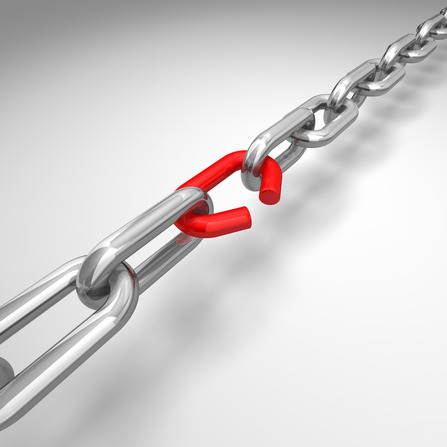Can disavowing links really help your site?
Do you remember when JCPenny found out the hard way that it’s a really bad idea to hire an SEO company who buys backlinks to boost rankings? Do you think JCPenny believes it was worth getting banned from Google indefinitely for the quick boost in traffic they got? Probably not.
Google hates cheating, and that includes link farms. A link farm is any site that’s meant to create inbound links for your site, even if it includes writing full-length articles to do it. In fact, that’s the most popular strategy behind link farms, and why Google cited the popular and well-ranked EzineArticles as a link farm not too long ago. Lots of publishers used EZineArticles back in the day to write articles that drove traffic back to their sites, and thankfully sites like these are working hard to clean up their rep for everyone’s sake.
But unfortunately your past participation could be hurting you now because you may have inbound links from sites that Google deems low-quality.
Links are just one of 200 signals that Google uses to determine how high a page will get ranked in their search engine for each specific search query. Sites that got hit especially hard by the Penguin update had a lot of bad backlinks.
“Links are one of the most well-known signals we use to order search results. By looking at the links between pages, we can get a sense of which pages are reputable and important, and thus more likely to be relevant to our users. This is the basis of PageRank,” writes Jonathan Simon, Webmaster Trends Analyst.
On Oct. 16, Google announced their newest disavow tool – a tool that’s meant to help sites that are maliciously linked to by low-quality sites. Or, as the case may be, a tool to remove any bad decisions in link-buying you may have made in the past.
[text_ad]
Reasons to disavow
Google warns against using this tool unless you’re completely certain that the links you want to remove are harming your ranking. Here are instances when you should do it:
- You get a message in Webmaster Tools that says you have “unnatural links”
- You’ve paid for links in the past
- You’ve participated in link exchanges in the past
- You’ve participated in any link schemes that violate Google’s quality guidelines
The first recommendation is to get the links removed manually, and then only using the disavow tool if you can’t. If you can’t, Google asks you to submit a plain-text file that gives the links that you’d like to be removed from the algorithm.
To look for bad links, Google recommends the “Links to Your Site” feature in Webmaster Tools.
“From the homepage, select the site you want, navigate to Traffic > Links to Your Site > Who links the most > More, then click one of the download buttons. This file lists pages that link to your site. If you click “Download latest links,” you’ll see dates as well. This can be a great place to start your investigation, but be sure you don’t upload the entire list of links to your site — you don’t want to disavow all your links!”
How disavowing links could actually hurt you
Just because the disavow tool is user-friendly, doesn’t mean you need to use it. In fact, Google has said that most users won’t need to use it.
Even low-quality links, if they’re not deemed spammy by Google, can help increase your rank. If you remove 20 unimportant but non-spammy inbound links to your site, that’s still 20 lost inbound links.
This is especially harmful if you don’t have a back-up plan in place – a plan to keep building inbound links in a white-hat kind of way. Usually the best way is to contribute blog points to high-quality sites in your niche, with a link back to your site in your author bio.
We’ve read from numerous sources that the disavow tool can take weeks and months to help. Once you get the warning in your Webmaster Tools, you’re already in trouble. Some recommend that changing your URL can be a better solution.
If you have any questions about whether or not you should be using this tool, watch the video below:
We’d love to hear if you’ve used the disavow tool and if you’ve gotten any positive ranking effects back from it!




Hi Peggy,
The disavow tool can help get rid of spammy links to your site (for example, if you paid an SEO company to build backlinks and they went the blackhat route) however it’s not a guarantee since there are many other factors considered.
Is it possible to get my website back up in google’s index after I have used the disavow tool? If so, how?
I found it very intimidating the first time I ever left a comment for someone. I’ve learned not to be shy, especially when you have something valuable to add to the conversation.